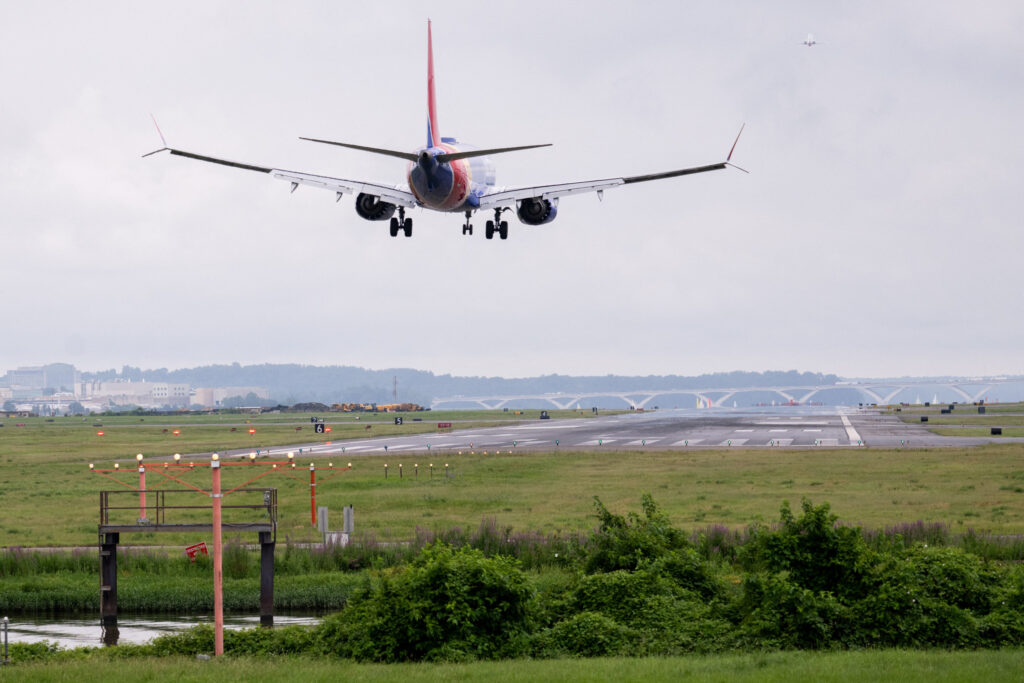The Federal Aviation Administration (FAA) announced a proposed $3.1 million civil penalty against Boeing due to multiple safety and quality-system violations including an incident in January 2024 where a door plug panel on a flight got loose on its fuselage during midflight.
In a press release issued on Friday, the FAA said it found “hundreds of quality system violations” at Boeing’s 737 factory in Washington state and at the Kansas Boeing subcontractor Spirit AeroSystems’ 737 factory.
“We regret the January 2024 door-plug accident and continue to work on strengthening our safety culture and improving first-time quality and accountability across our operations,” a Boeing spokesperson said in a statement emailed to Newsweek on Saturday.
The FAA referred Newsweek to the agency’s statement when reached for comment by email on Saturday.
Why It Matters
The proposed penalty covers violations between September 2023 and February 2024 and follows a 17-month National Transportation Safety Board (NTSB) investigation that attributed the incident to manufacturing and oversight failures by Boeing and shortcomings in FAA inspections and audits.
The FAA’s proposed fine also escalates federal scrutiny of Boeing’s production and safety practices at a time when the company is still dealing with multiple other high-profile incidents, including the 737 MAX crashes in 2018 and 2019.
The FAA’s action signals continuing federal intervention in aircraft production oversight and could influence certification, production rates and U.S. supply-chain reviews for Boeing-built planes.
What To Know
The penalty of $3,139,319 comes amid several incidents involving Boeing aircrafts that led to hundreds of deaths.
On January 5, 2024, a paneled-over exit door, known as a door plug, blew out of an Alaska Airlines Boeing 737 MAX 9 shortly after takeoff from Portland, Oregon. While no one was injured, passengers described a horrifying situation in the cabin as people experienced intense air pressure.
That incident came after two separate Boeing 737 MAX crashes that killed a total of 346 people between 2018 and 2019.
The NTSB said its 17-month investigation identified shortcomings in Boeing’s manufacturing processes and safety oversight, and found FAA inspections and audits were ineffective in preventing the condition that led to the door plug’s blowout.
The FAA’s press release also alleges an instance in which a non-Organization Designation Authorization (ODA) Boeing employee pressured a member of the company’s ODA unit to approve a 737 MAX for delivery despite known noncompliance with applicable standards—an allegation the FAA cited as evidence of interference with the independence of delegated safety officials.
Lawmakers and safety advocates have previously pushed for tougher oversight of Boeing following the 737 Max crashes and more recent production-quality revelations.
What People Are Saying
The Federal Aviation Administration (FAA) said in a press release Friday: “The FAA identified hundreds of quality system violations at Boeing’s 737 factory in Renton, Washington, and Boeing subcontractor Spirit AeroSystems’ 737 factory in Wichita, Kansas. Additionally, Boeing presented two unairworthy aircraft to the FAA for airworthiness certificates and failed to follow its quality system.”
A Boeing spokesperson said in a statement emailed to Newsweek Saturday: “We regret the January 2024 door-plug accident and continue to work on strengthening our safety culture and improving first-time quality and accountability across our operations. Last year, under the oversight of the FAA, we instituted a Safety & Quality Plan with key performance indicators to enhance safety management and quality assurance in airplane production. Our team continues to implement these improvements, such as investing in workforce training, strengthening production system compliance and encouraging employees to speak up.”
What Happens Next?
Boeing has 30 days to respond to the FAA’s proposed fine.
The company’s reply may lead to settlement negotiations, an administrative hearing, or a final agency order depending on the FAA’s enforcement process.
Read the full article here
